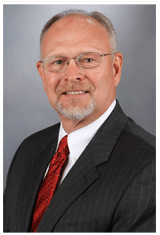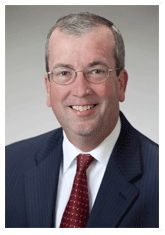JEFFERSON CITY, Mo. — As an interim citizen and legislator commission in the Missouri House of Representatives prepares to embark on the first of its meetings across the state to hear input on Medicaid expansion and transformation beginning Wednesday, the Senate interim committee handling the matter spent Tuesday hearing testimony from witnesses across Missouri about the state of Medicaid.
The six-plus hour hearing featured dozens of witnesses ranging from healthcare providers to Medicaid recipients and representatives from AARP.
Tasked with submitting a report by the middle of December recommending legislative action on the issue, the Missouri Senate is continuing to explore options relating to the expansion of Medicaid eligibility in Missouri to individuals making 138 percent of the federal poverty level as mandated by the Affordable Care Act.

Democrats on the committee, echoing their colleagues in the House, repeatedly have called for the expansion as a common-sense measure to provide healthcare to the poorest Missourians and create thousands of jobs in the healthcare industry. Republicans, who have veto-proof majorities in both chambers of the legislature, have largely resisted expansion as a tacit endorsement of the ACA and an irresponsible expansion of an inefficient system.
“The worst thing we can do is start a program we can’t maintain,” Sen. Gary Romine, R-St. Francois, who chairs the Senate interim group, said. “We need a clear indication of where the funds are coming from, and we need to know we can afford this in three or four years.”
The ACA only guarantees full federal funding for Medicaid expansion in the states for three years. After that, the law only requires the federal government to pay for 90 percent of the cost, and Romine expressed concerns along with his Republican colleagues that the state could be left “holding the check.”
Tuesday’s hearing was largely informational, and lawmakers on both sides said that the issue of crafting a report and eventually a bill was still “preliminary.”
“We need to have this thing set straight and locked down before we make recommendations,” Sen. Joseph Keaveny, D-St. Louis, told The Missouri Times. “There are some issues where we are very close to an agreement and then there are places where we really need to discuss where we can compromise.”

Keaveny said that both sides could agree on the need for providing better overall healthcare for the mentally ill as well as the need to adjust the state’s reimbursement rates for Medicaid recipients, which have not been changed since 1965. On other issues, though, he says a lot of negotiations must still be done.
Amidst the complex task of reforming and expanding a massive healthcare provider system is the challenging navigation of the political landscape.
Republicans have accused Democrats of courting poor and minority votes as they vie for expansion while Democrats say Republicans resisting expansion are worried about backlash from constituents who see the move as an endorsement of the healthcare policy of President Barack Obama.
“A lot of the resistance to this measure is political rhetoric,” Keaveny said. “Now, that said, today and on other days, I’ve heard some very reasoned and grounded opposition as well.”
Romine says that politic concerns shouldn’t dictate such an important policy, but that they would always be a factor.
“Everyone here is tasked with serving those constituents that sent them here and some of them have spoken about Obamacare and this expansion of government,” Romine said. “It’s our job to wade through that and find common ground with each other that also translates into good public policy that the people that voted for us will accept, and it’s not an easy line to walk.”
The committee will meet again on August 14 to hear informational testimony dealing with “supply side” healthcare concerns, such as providers, according to the committee schedule.




